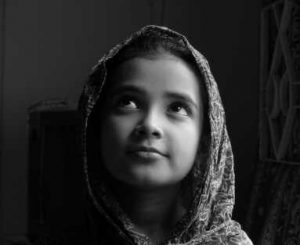Answer
In this counseling answer:
“When a person feels powerless to change something, they either submit to the situation, run away (i.e. escape) from the situation, or become overtly domineering. Like any other teenager, she needs you to just be there for her when she needs you. Sometimes, we perceive a situation to be beyond our scope, which only debilitates us more”
As salamu ‘alaykum my dear child
Al hamdu Lillah, that the situation at home has improved a little, and we pray that the situation will continue to improve for all involved, with the contribution of all concerned, in sha ‘Allah.
My dear, when it comes to teenagers, most mothers feel that they have failed. It is quirky period of life, not helped by a sense of not belonging. There are mood swings, and a strong compulsion to challenge anything or anyone that tries to control their life in a direct manner. In other words your sisters behavior has nothing to do with you. As you said: ” Our relationship has been disturbed ever since then [your mother’s death].”
Despite the arguments between your parents, you have had more of your mother in your life than your younger sister has, so she feels betrayed, let down, denied of what she feels she should not have to do without.
So do not let the situation make you feel that you are incapable of “mothering” her, because if you were not, I’m quite sure you would not be writing to us with such concerns. When a person feels powerless to change something, they either submit to the situation, run away (i.e. escape) from the situation, or become overtly domineering. Like any other teenager, she needs you to just be there for her when she needs you. Sometimes, we perceive a situation to be beyond our scope, which only debilitates us more:
{And obey Allah and His Apostle and do not quarrel for then you will be weak in hearts and your power will depart, and be patient; surely Allah is with the patient} (An Anfal 8: 46).
Our power departs and we waste the opportunity to benefit (i.e. to learn) from that situation — we lose faith and forget that:
{Allah does not impose upon any soul a duty, but to the extent of its ability; for it is (the benefit of) what we have earned…} (Al Baqarah 2: 286 and from Ayat ul Kursi).
Your concern for her acts of worship, can best be overcome by setting an example, and making frequent du’aa’ asking Allah (SWT) to guide her. Here is an example of an Istikhara (prayer for guidance) that you can adapt for your situation from the Sunnah of Prophet Muhammad (SAW):
Jabir bin `abd Allah recalled: “Allah’s Apostle used to teach his companions to perform the prayer of Istikhara for each and every matter just as he used to teach them the suras from the Qur`an. He used to say, “If anyone of you intends to do some thing, he should offer a two rakat prayer other than the compulsory prayers, and after finishing it, he should say: O Allah! I consult You, for You have all knowledge, and appeal to You to support me with Your Power and ask for Your Bounty, for You are able to do things while I am not, and You know while I do not; and You are the Knower of the Unseen. O Allah If You know It this matter (name your matter) is good for me both at present and in the future, (or in my religion), in my, this life and in the Hereafter, then fulfill it for me and make it easy for me, and then bestow Your Blessings on me in that matter. O Allah! If You know that this matter is not good for me in my religion, in my this life and in my coming Hereafter (or at present or in the future), then divert me from it and choose for me what is good wherever it may be, and make me be pleased with it” (Bukhari 9: 93 #487).
As Ramadan approaches, the both of you might feel your situation more, because of other families participation in Ramadan as a family. Sometimes, we need to step a little outside of ourselves, and walk in the shoes of others, to appreciate what we have. If you can, ask your father to help you choose an orphanage that you can visit together, and then maybe your sister will realize and be thankful that she has a father and a sister when some of these children have no one.
Invite in an open-ended way, so that she is free to make all her comments without feeling pressured, and therefore closing the door of opportunity from which she could benefit from. If you visit more than once, then maybe she won’t go on the first visit, but she might on the second visit. Go to the mosque after Iftar with your father to pray Tarawi’h (night prayers), and again your sister might join you. In this way you will be in the company of those, whose minds are all focused on a higher purpose, and you will not feel so alone.
“The Prophet (may peace and blessings be upon him) said: “The feet of a servant will not move on the Day of Judgment until he has been questioned about four things): his life – how he spent it, his knowledge – how he acted upon it, his wealth – where he earned it and how he spent it, and his body – how he used it” (At-Tirmidhi, Kitab sifat al Qiyamah wal Raqa’iq).
When you feel most helpless, do w’udhu (ablutions), do two rakats (rounds of prayers), and then tell Allah (SWT) all that is on your mind, then do some dhikr (remembrance of Allah (SWT), and allow your heart, mind and body to relax enough for the solution or realization to come to you, in sha ‘Allah.
May you grow in understanding and faith day by day, and may you never forget that Allah (SWT) is always nearer than you think, in sha ‘Allah
Salaam
***
Disclaimer: The conceptualization and recommendations stated in this response are very general and purely based on the limited information provided in the question. In no event shall AboutIslam, its counselors or employees be held liable for any damages that may arise from your decision in the use of our services.
Read more:



